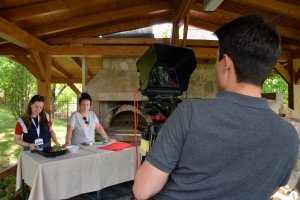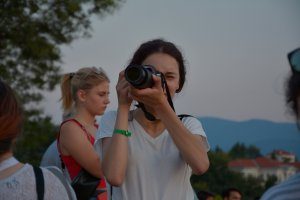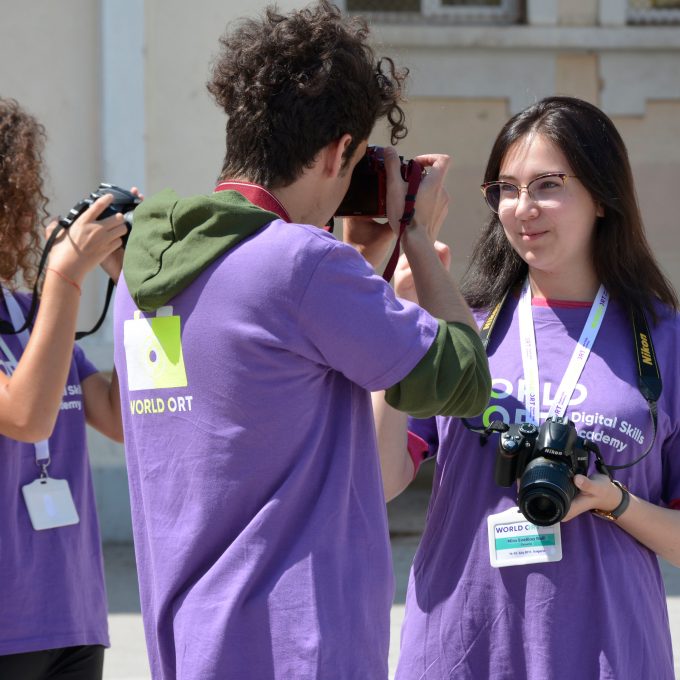Ayla Estreich
I cannot overstate the value gained from children being able to learn about something that they want to learn about, and to collaborate with peers from around the world with the same passion as them.
At the World ORT Digital Skills Academy (DSA) last month, students found themselves in a classroom setting in which they felt thoroughly motivated to learn. This opportunity can change their whole outlook on education.
For many young people, traditional academic subjects are not motivating, and they might spend a lot of time in lessons without finding them useful.
The Digital Skills Academy covers topics that its students are passionate about for their future.
The students have chosen to care about the topic and through self-motivation alone come on leaps and bounds in only two weeks of study.
At the summer school, students with a focused interest in digital media, photography, video and audio production, learn how to enhance their knowledge and skills to progress in this industry.
The program starts with theoretical learning in a traditional classroom setting. It’s important for the students to gain a theoretical basis before moving into the practical application. While a lot of the learning is independent, it is not just the teacher telling you what to do. The students have a task and they need to work on it.
There’s plenty of scaffolding in place to make sure that they can stay on task and that solutions to problems faced along the way can be found. This is dependant in large part on giving the students responsibility to achieve their aims.
Most students come to the summer school as hobbyists or beginners and leave with the skills and experience to create their own high-quality photographs and small productions independently as well as in a team.

With the help of a specialist teacher who shares their passion and is dedicated to them and their progress, students are reminded that they can do well in a school environment, that they can achieve and feel motivated.
It takes careful planning and preparation from the staff and the results are incredibly rewarding.
One student from Ukraine was tasked with the difficult job of being the director of the final project. Initially she was stressed out by the breadth of the task, the information she didn’t know and the skills she was yet to obtain.
Plenty of times in my school experience I’ve seen students quit when faced with similar difficulties.
Throughout the summer school the student sought answers from her teachers, she collaborated with her peers, listened to the feedback and practiced, improving every day.
In the summer school environment which promotes self-directed learning, resilience and collaboration, our students persevere and come out with advanced skills at the other side.

Tips for educators in schools
Giving young people more independence and more trust is incredibly valuable but you need to make sure there’s scaffolding in place – enough support for them to achieve their aims. There’s nothing worse than an open-ended task with no help that can lead to failure.
For student-led or project-based learning, set up each small step so that students can build up to something bigger, make the students feel confident that if they’re stuck there will be an answer and give them opportunities for independent learning by pointing them into the direction of other resources such as text books, the internet, peers and even other teachers/ staff in the school.
Ayla Estreich is a Maths teacher from the UK and Digital Skills Academy staff member. Ayla also works as program coordinator for Action for Education, an NGO providing education for young people and women who are refugees and asylum seekers in Greece.
If you want to support the work of Action for Education follow this link – https://www.actionforeducation.co.uk/donate
To keep updated go here: https://facebook.com/actionforEdu/





